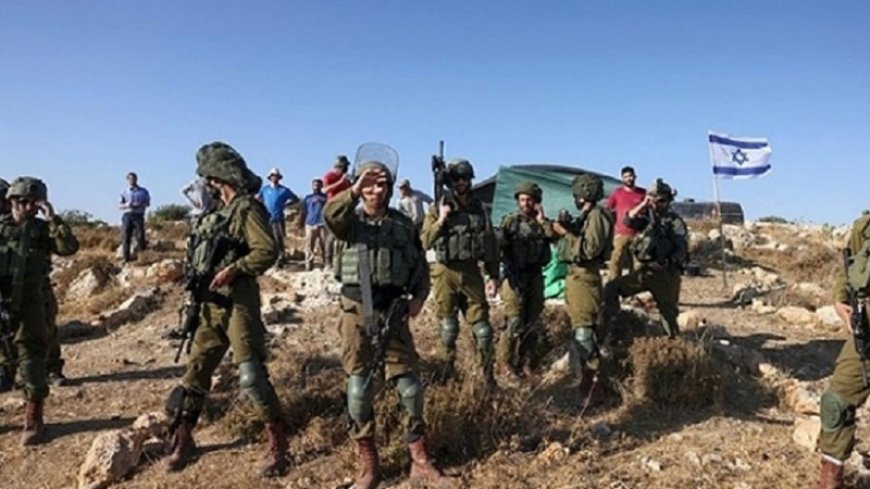Israel's strategic stalemate in the Gaza war
Although the Zionist regime and Netanyahu's right-wing and pro-war government have blocked ceasefire negotiations by proposing impractical terms, which has escalated the problems of serving the survivors of war-torn Gaza residents, the prolongation of the war is taking its toll on the occupying regime and, as time goes on, The aftershocks of the war reveal themselves one after another.

Although the Zionist regime and Netanyahu's right-wing and pro-war government have blocked ceasefire negotiations by proposing impractical terms, which has escalated the problems of serving the survivors of war-torn Gaza residents, the prolongation of the war is taking its toll on the occupying regime and, as time goes on, The aftershocks of the war reveal themselves one after another.
One of these aftershocks is the chain of resignations that started in the military and security systems of this regime in recent days and weeks and is reaching new dimensions every day.
Israeli sources reported Wednesday night that the commander of a special stealth unit in the Israeli army currently serving in the Gaza Strip has suddenly resigned from his post.
This Israeli commander joined two other senior officers in deciding to resign: the head of the army's military intelligence service and the army's central district commander.
At the same time, the media of the Zionist regime announced that the commander of the special unit "Refaim" also planned to resign.
Simultaneously with the resignation of the head of the Zionist regime's military intelligence department, the possibility that the Shabak head of this regime and the head of the joint army will also resign has become stronger.
According to Yedioth Ahronoth newspaper, following the resignations of the Zionist regime's military intelligence department head "Aharon Haliva", chief of general staff "Herzi Halevi" and chief of general staff "Ronin Bar", the internal security agency of this regime (Şebak) also resigned from their positions by joining Haliva. They did.
According to this newspaper's prediction, the resignation of the Chief of General Staff and the head of Shabak will lead to the beginning of a wave of protests in the streets and a wave of resignations in the army and the political sphere.
This regime was always afraid of the unity of the fields and that one day it would have to go to war on many fronts at the same time, and now this nightmare has come true.
Lebanese Hezbollah, the first group of the resistance front to take action in support of Gaza, officially announced from the beginning that it had joined this war on October 8, 2023, the second day of the Battle of the Al-Aqsa Mosque Flood, and emphasized its support for the people of Gaza and their resistance.
The goal of the Lebanese resistance when entering the battle for Al-Aqsa Mosque was to engage some of the Zionist army brigades on the northern front of occupied Palestine and thus relieve the burden on the shoulders of the resistance.
After that, the Lebanese Islamic resistance gradually began to expand its operations in quantitative and qualitative dimensions, and although Hezbollah had not yet shown its true strength in this war, it introduced many new weapons that baffled the enemy; In particular, Zionists cannot predict which weapons Hezbollah plans to use next, and this makes it difficult for Israel to counter Hezbollah's operations.
Zionists' concerns about Hezbollah's operations were further increased by the party's demonstration of its ability to shoot down advanced Israeli drones, so much so that since the beginning of the Gaza war, the Israeli army's 5 advanced drones, including the Hermes 450 and 900 drones, have been shot down by Zionists. This regime, which was costly for the regime, was particularly proud of its effectiveness in gathering information. This is one of the important methods used by Hezbollah in its new operations against the army's positions. In the shadow of the great impasse that the Israeli army is in in Gaza, Hezbollah's operations against the Zionist regime, which continue with increasing intensity and speed every day, are an issue that confuses enemy defense systems and increases the pressure on Israel.
According to the latest statistics, Hezbollah has carried out 186 operations against Zionist settlements in the last 7 months, 176 operations at the border points of Lebanon and occupied Palestine, 1112 operations against the positions of the Zionist regime army at the border points, 55 operations against the positions of the Zionist regime army in the occupied regions, 70 operations against the bases of the Zionist regime. operation and carried out 51 air operations against this regime.













































